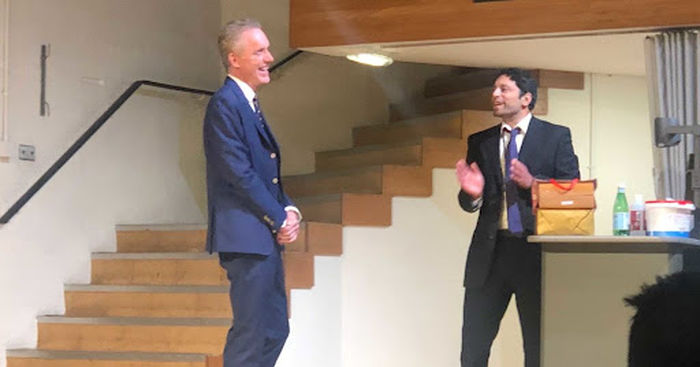Dr Arif Ahmed: ‘Free speech so important it should be taught alongside consent’
Arif Ahmed explained why he believes freedom of speech is ‘progressive and radical’, but worries it’s under threat

Freedom of speech is so important it should be taught alongside training on consent, a Philosophy don has said.
In an interview with Varsity, Arif Ahmed, an outspoken philosophy lecturer at Gonville & Caius College, said that “free speech is deeply radical and progressive”, but is currently under threat in Cambridge.
“Just as you get training about consent, sexual health, and fire safety, there should also be some sort of introduction about free speech”, he said.
Students, he argued, need to be told that “university should be an environment where you can say pretty much anything you like and other people can say whatever they like as well.
“You can expect to be offended and being offended or shocked shouldn’t automatically be grounds for complaint”.
He believes such training is necessary because “it is a very natural impulse to try and suppress the views of people you don’t agree with.”
The philosopher is no stranger to defending free speech in Cambridge.
In 2020, he led the charge against the University’s plans for a new “free speech” policy which Ahmed wrote would have “required all of us to ‘respect’ the opinions and ‘identities’ of others” – plans which “offered practically endless scope for censorship”.
“Respect”, he said, implies a degree of approval that “could be used to shut down the kinds of speech and debate that is necessary for a university to function”, whereas “tolerate” allows this while preventing harassment and the suppression of speech.
When the plans were rejected by the University’s governing body in December 2020, Ahmed greeted the outcome as a victory, writing that the new rules helped enable Jordan Peterson to be reinvited to Cambridge after the psychology professor had been disinvited in 2019.
But Ahmed believes there is still work to be done.
There are “everyday infringements of free speech”, with people self-censoring on issues such as Brexit, the Israel-Palestine conflict and trans rights.
He said people fear voicing their opinions not because others may “think they’re an idiot” but because of their concerns about retaliation from employers, citing a recent UCU survey which suggested British academics self-censor more than their European counterparts for fear of punishments from their employers.
But what happens when free speech leads to hate speech? Ahmed thinks the law, and by extension universities, should only prevent speech if it directly crosses a “clear and serious line like the incitement of violence or legal confidentiality. Otherwise, legitimate speech such as supporting Palestinian rights, could be stifled because it could easily be portrayed as having some tenuous connection with racism or violence.”
Ahmed argues that the people in power generally set the bounds of acceptable speech and as such censorship often involves “instances of people who have power oppressing people who don’t”.
He cited Margaret Thatcher’s Section 28, which banned the “promotion of homosexuality” in schools, and McCarthyism in the United States, the crackdown on artists writers accused of harbouring communist sympathies, as examples of the suppression of left-wing voices.
Most importantly, does he think the University is going far enough to champion free speech? Not quite. Given their relationship with institutions that do not promote free speech, Ahmed fears they may be guilty of “double standards” given freedom of expression is a “core value” of the University, according to their 2020 statement.
Nevertheless, Ahmed maintained that universities should avoid taking a stance on political issues that may alienate people as they are “not moral institutions” and there is “no mechanism” to determine the views of their members.
 Comment / Cambridge students are too opinionated 3 days ago
Comment / Cambridge students are too opinionated 3 days ago Interviews / Meet the Chaplain who’s working to make Cambridge a university of sanctuary for refugees4 days ago
Interviews / Meet the Chaplain who’s working to make Cambridge a university of sanctuary for refugees4 days ago News / News in brief: campaigning and drinking4 days ago
News / News in brief: campaigning and drinking4 days ago Comment / Cambridge’s tourism risks commodifying students6 days ago
Comment / Cambridge’s tourism risks commodifying students6 days ago Comment / Does the AI revolution render coursework obsolete?a day ago
Comment / Does the AI revolution render coursework obsolete?a day ago








